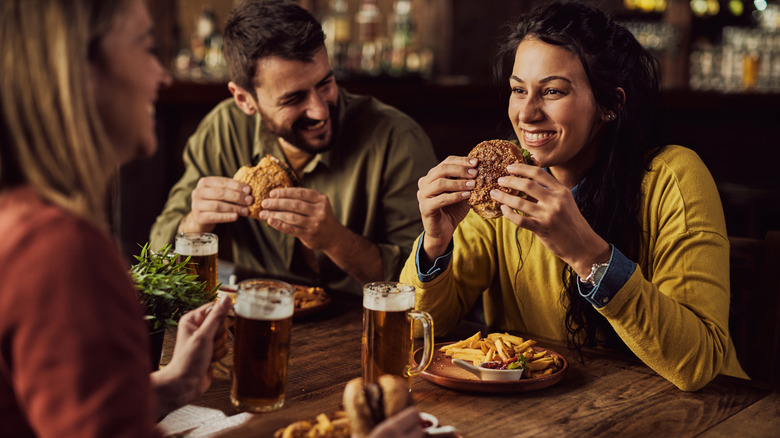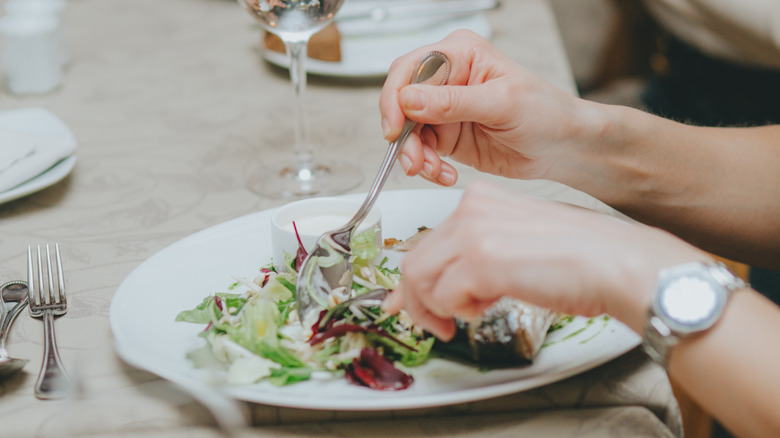The Reason Putting Your Elbows On The Table Is Considered Rude
Etiquette expert Emily Post wasn't the first to target elbows on the table as a bane to civilized dining for both children and adults. As far back as biblical times, this tabletop behavior was considered an affront to good table manners. Dutch philosopher and Catholic theologian Erasmus certainly thought so, writing in his 1530 handbook "On Civility in Children" that leaning on the table with one or both elbows was only acceptable for those who were "weak from old age or illness."
Exactly what is it about elbows on tables that is so objectionable, though? Well, for one, it promotes bad posture (the etiquette rule was apparently at one time a way to prevent slouching, shares Martha Stewart). It also promotes aggressive posturing, or at least has been purported to do so throughout history. According to Margaret Visser, author of "The Rituals of Dinner," dining etiquette evolved to keep people from fighting during meals (via Reader's Digest). So although keeping one's elbows on the table during dinner may be comfortable, it's also perceived as being a bit confrontational. Which is to say, rude.
Why the elbow rule is changing ... somewhat
There have always been exceptions to the no elbows on the table rule. Emily Post, although against the practice in general, allowed that it was fine while conversing between courses. Nowadays, the rule seems to have fallen out of favor completely, at least in some circles. Taste of Home, for example, named it one of the 20 dining etiquette rules that no one follows anymore. Reader's Digest went even further, claiming it's an etiquette rule even experts don't follow today.
Maralee McKee of the Etiquette School of America believes manners have definitely changed in recent years. But although she thinks some areas of compromise exist for the elbows on the table rule — before ordering, between courses, after the dishes are cleared, for example — she still believes in its essential correctness as a principle of good manners.
"My mentoring," McKee said, "is that it's best to keep your elbows OFF the table, just like your mom taught you!" adding that "if you have children, it will be a lot easier on you and them if they only have to learn one manner concerning their elbows: They don't belong on dining tables."

